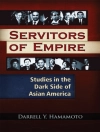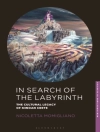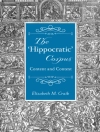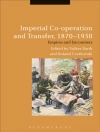Michel Foucault’s seminal The History of Sexuality (1976–1984) has since its publication provided a context for the emergence of critical historical studies of sexuality. This collection reassesses the state of the historiography on sexuality—a field in which the German case has been traditionally central. In many diverse ways, the Foucauldian intervention has governed the formation of questions in the field as well as the assumptions about how some of these questions should be answered. It can be argued, however, that some of these revolutionary insights have ossified into dogmas or truisms within the field. Yet, as these contributions meticulously reveal, those very truisms, when revisited with a fresh eye, can lead to new, unexpected insights into the history of sexuality, necessitating a return to and reinterpretation of Foucault’s richly complex work. This volume will be necessary reading for students of historical sexuality as well as for those readers in German history and German studies generally who have an interest in the history of sexuality.
विषयसूची
List of Figures
Introduction: After the History of Sexuality? Periodicities, Subjectivities, Ethics
Scott Spector
PART I: WHEN WAS SEXUALITY? RETHINKING PERIODIZATION
Chapter 1. After the History of (Male) Homosexuality
Helmut Puff
Chapter 2. Sexual Identity and Other Aspects of ‘Modern’ Sexuality: New Chronologies, Same Old Problem?
Merry Wiesner-Hanks
Chapter 3. Interior States and Sexuality in Early Modern Germany
Ulinka Rublack
Chapter 4. Saying It With Flowers: Post-Foucauldian Literary History and the Poetics of Taboo in a Premodern German Love Song (Walther von der Vogelweide’s Under der linden)
Andreas Krass
Chapter 5. Early Nineteenth-Century Sexual Radicalism: Heinrich Hössli and the Liberals of His Day
Robert Deam Tobin
PART II: WHOSE SEXUALITY? SUBJECTIVITY, SURVEILLANCE, EMANCIPATION
Chapter 6. Anna Rüling, Michel Foucault, and the ‘Tactical Polyvalence’ of the Female Homosexual
Kirsten Leng
Chapter 7. To Police and Protect: The Surveillance of Homosexuality in Imperial Berlin
Robert Beachy
Chapter 8. Soliciting Fantasies: Knowing and Not-Knowing about Male Prostitution by Soldiers in Imperial Germany
Jeffrey Schneider
Chapter 9. Between Normalization and Resistance: Prostitutes’ Professional Identities and Political Organization in Weimar Germany
Julia Roos
Chapter 10. Writing Love, Feeling Shame: Rethinking Respectability in the Weimar Homosexual Women’s Movement
Marti Lybeck
Chapter 11. Transsexual: Herculine Barbin Meets ‘Liebe Marta
Philipp Sarasin
PART III: THE POLITICS OF SEXUAL ETHICS
Chapter 12. Beyond Freedom: A Return to Subjectivity in the History of Sexuality
Tracie Matysik
Chapter 13. Homosexuality in the Sexual Ethics of the 1930s: A Values Debate in the Culture Warsbetween Conservatism, Liberalism, and Moral-National Renewal
Andreas Pretzel
Chapter 14. Socialist Eugenics and Homosexuality in the GDR: The Case of Günter Dörner
Florian G. Mildenberger
Chapter 15. Sex, Sentiment, and Socialism: Relationship Counseling in the GDR in the Wake of the 1965 Family Law Code
Erik Huneke
Chapter 16. Longing, Lust, Violence, Liberation: Discourses on Sexuality on the Radical Left in West Germany, 1969-1972
Massimo Perinelli
Postscript: Tomorrow Sex Will Be Good Again
Dagmar Herzog
Select Bibliography
Contributors
Index
लेखक के बारे में
Dagmar Herzog is Distinguished Professor of History and Daniel Rose Faculty Scholar at the Graduate Center, City University of New York.












